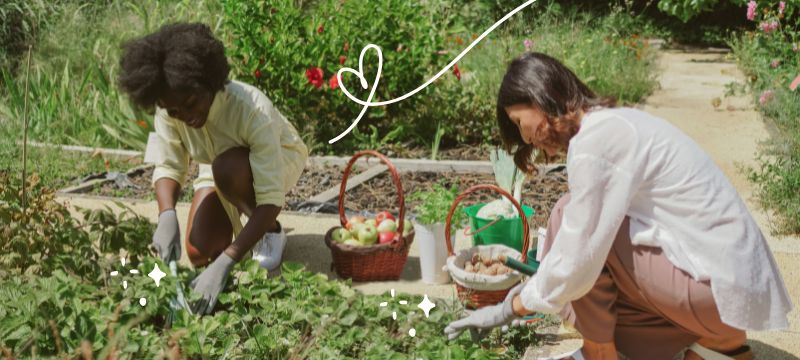3 Ways to Cultivate Self-Love When You’re Neurodivergent

It can be tough being neurodivergent in a hostile world.

Neurodivergence & low self-esteem
Many neurodivergent people face challenges that can cause low self-esteem.
These challenges may arise from differences in how we think, learn, or interact with the world.
These differences can lead to feelings of being ‘out-of-sync’ with society. Such as differences in:
- cognitive patterns
- sensory processing, or
- communication styles
Plus, coping with a neurotypical world can be exhausting. Leading to neurodivergent burnout and even lower self-esteem.
It can be easy to internalise negative stereotypes and judgements. Which means you may struggle with self-worth and embracing your unique traits.
Why self-love is important for neurodivergents
Learning to love yourself as a neurodivergent person is crucial.
In a world that doesn’t understand or appreciate neurodiversity? Self-love becomes a vital source of resilience and empowerment.
Loving yourself means recognising your unique qualities as strengths, instead of deficits.
Self-love helps shield you from the damaging effects of low self-esteem.
By embracing your neurodivergent traits, you can inspire others to do the same.
Which promotes a more inclusive and compassionate society.
Self-love is a catalyst for personal growth and a brighter future for all.
So here are 3 ways to cultivate self-love as a neurodivergent person.
1. Self-compassion

Self-compassion is all about being kind to yourself. Just like you would be to a good friend.
It’s about recognising your own humanity.
To be aware of your own struggles and emotional pain without judgment. And realising that these experiences are a part of life.
Instead of being hard on yourself, you’re gentle with yourself instead.
Treating yourself with warmth, kindness and understanding leads to greater self-acceptance and wellbeing.
Which is especially important when you’re neurodivergent.
Making errors or struggling with certain tasks is not a reflection of your worth as a person.
To practice self-compassion, you can start by noticing when you’re feeling down or stressed.
And then telling yourself, “I’m going through a tough time, but it’s okay. I’m only human.”
Then, you can comfort yourself with soothing words and actions.
Like giving yourself a comforting hug. Or repeating affirmations to soothe overwhelm.
You can also engage in self-soothing activities. Like stimming, deep breathing, or activities that bring you joy and relaxation.
Self-compassion helps you be more accepting of your neurodivergent traits. Which can lead to greater self-love, happiness and peace of mind.
2. Stop comparing

To break free from the habit of comparing yourself to others, start by embracing self-acceptance.
First, acknowledge your neurodivergent traits as a natural part of who you are.
Neurodivergent traits, though different from neurotypical ones, offer their own set of advantages. Neurodivergent people enrich the world in distinct ways.
In fact, everyone has unique strengths and weaknesses. Neurodiversity is just another facet of human diversity.
This self-acceptance can help you embrace your differences and avoid self-judgement.
Secondly, recognise your talents that are a direct result of your neurodivergence. These can be sources of pride and confidence.
Focus on appreciating your individuality. And the progress you make on your personal journey.
Make a list of your achievements, big or small, and regularly revisit it. Celebrate your successes, no matter how minor they may seem.
Remember, success is highly individual and not solely defined by neurotypical benchmarks.
By shifting your focus to your own path, you’ll reduce the need for comparison.
And by focusing on your unique qualities and embracing self-love? You can unlock a more fulfilling and contented life.
3. Find community

Social media can be a minefield of toxic comparison and highlight reels.
But it can also be a wonderful place to discover other neurodivergents.
Find accounts, books, and online forums that provide insights and tools specific to neurodivergence.
Curate your online environment to include positive and supportive people.
If possible, seek out supportive communities in the real world too.
Connect with others who understand your challenges and triumphs. Who can share their experiences and strategies for coping in a neurotypical world.
Engaging with neurodivergent communities, both online and offline, can provide valuable insights and support.
Sharing experiences and advice can help you feel less isolated and more valued. Which can help you cultivate a deeper level of self-love.
If you’re struggling with self-love or facing severe mental health challenges? Don’t hesitate to seek professional help.
Therapists, counsellors, and support groups can offer valuable guidance tailored to your needs.
Takeaway
Cultivating self-love as a neurodivergent person is an important journey. One that requires patience, self-acceptance, and a supportive environment.
You can build a strong foundation of self-love by:
- embracing your differences,
- seeking support, and
- practising self-compassion
One that empowers you to navigate life’s challenges with confidence and resilience.
Remember that you are valuable, just as you are. Your neurodivergence is an integral part of your beautiful, unique self.
The Restful app is made by & for neurodivergents. Download for free on Google Play or the App Store today!